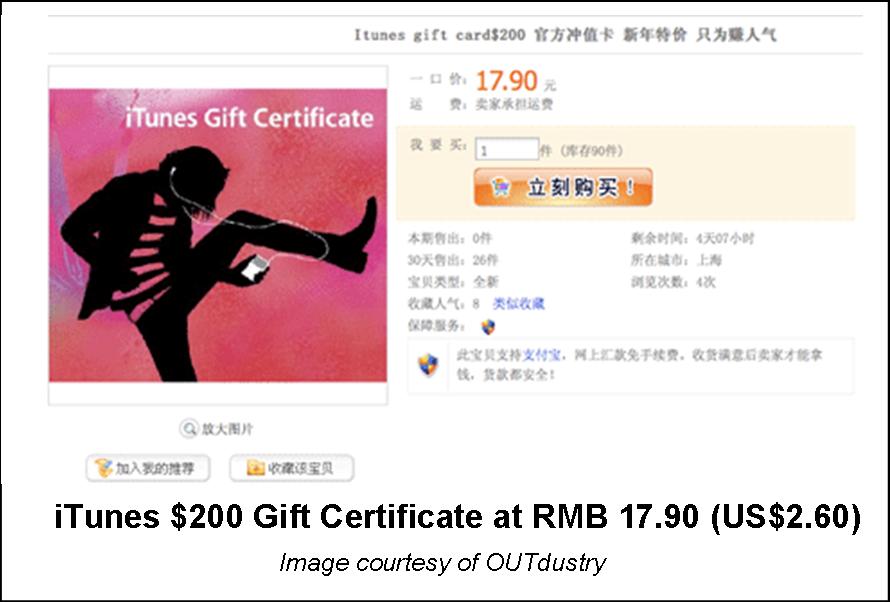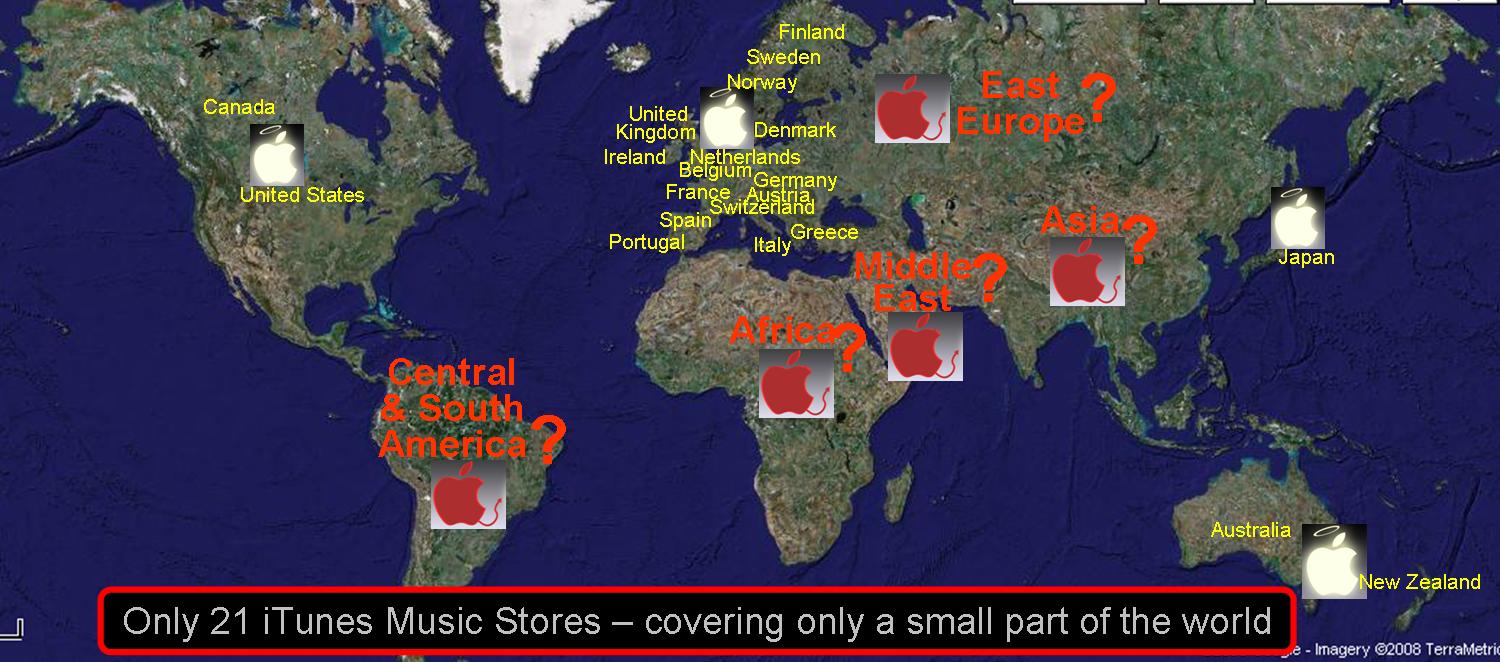iTunes ‘Crack’ Shows Chinese Users Willing To Pay For Music
The belated revelation, courtesy of OUTdustry on the flow of cheap music from iTunes via codes sold in China – a practice obviously unsanctioned by Apple, which has been going on for quite a while (and on eBay too I’ve heard), has certainly set the blogosphere abuzz.
Gizmodo had the most succinct take on it, describing it as “Pirate money – and get legal material”.
The other international reactions which range from outright condemnation of the hackers to in-depth dissections on how it happened, including possibilities of iTunes algorithmic code cracks, credit card fraud and gift card supply chain hijacks amongst others have so far focused on the symptoms and failed to get to the nub of why it has happened.
A simplistic and lazy Edmund Hilary-esque explanation as some might attribute to the hackers as ‘we hack it because it’s there’ would be off the mark.
Instead, a few cognizant, and dare I say after a fashion, inconvenient truths emerge from this iTunes Music Store episode:
1) Chinese users ARE WILLING TO PAY FOR MUSIC
2) There is only a limited selection of easily accessible legal full-length music in China currently
3) Labels in general are more willing to licence their music to iTunes (8 million and counting), but iTunes only serves the rich (markets) and ignores the rest of the world
4) International Labels who decide to write off China for now and who state that they will license their music in China “when the market gets better” do so at their own peril
5) Payment mechanisms & revenue collection methods are very much different in China than iTunes markets. We have to live with it!
My observations are shaped by the hands-on experience of launching the Wawawa Music Store (www.wa3.cn ) in China, which is now the largest online independent music store in China with more than 2,000 label partners offering more than a million songs at what we hope is an affordable price. There are still many other labels that are not offering users in China the opportunity to access their music legally, and this can only serve to feed the beast.
On the plus side, for international labels and artists, China, though not quite fully a level playing field due to the language gap, at least presents them a fighting chance to make inroads viz a viz major labels. Canadian, Scandinavian and hitherto obscure central and eastern European artists have certainly been clever enough to capitalize on this opportunity so far. An example is Maximilian Hecker, a German pop artist who is one of the most popular Western artists in China.
In conclusion, the silver lining of the iTunes ‘crack’ episode serves to highlight some positives – that users are willing to pay to access a wide collection of music at prices that they deem fairer.

